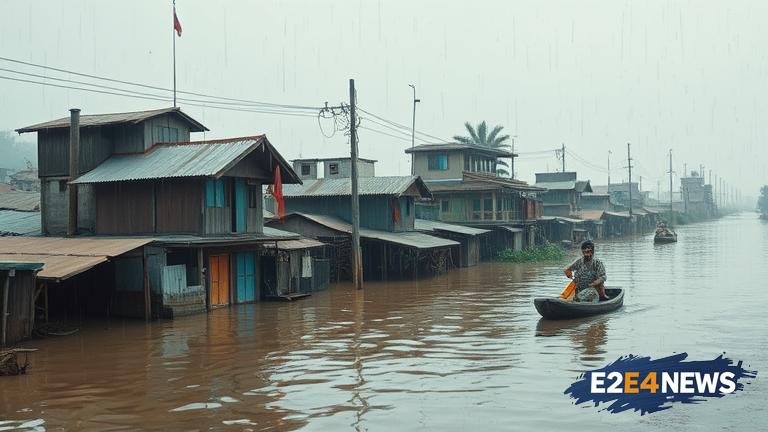Pakistan is grappling with a devastating humanitarian crisis as relentless rains and floods have left a trail of destruction in their wake. The country has been experiencing one of its worst monsoon seasons in recent history, with the rains showing no signs of abating. The floods have affected over 30 million people, with thousands more displaced and forced to seek shelter in makeshift camps. The government has declared a state of emergency and is working to provide aid to those affected, but the scale of the disaster is overwhelming. The floods have also had a significant impact on the country’s infrastructure, with roads, bridges, and buildings destroyed or damaged. The agricultural sector has also been severely affected, with crops destroyed and livestock killed. The economic impact of the floods is likely to be severe, with the country’s GDP expected to take a hit. The international community has pledged support to Pakistan, with several countries offering aid and assistance. The United Nations has also launched an appeal for funds to help those affected by the floods. The Pakistani government has established a relief fund to help those affected, and the military has been deployed to assist in the relief efforts. Despite the challenges, the people of Pakistan are showing remarkable resilience and determination in the face of this disaster. The government has also announced plans to rebuild and restore the affected areas, with a focus on providing shelter, food, and healthcare to those in need. The floods have also highlighted the need for climate change mitigation and adaptation measures, with Pakistan being one of the countries most vulnerable to the impacts of climate change. The government has pledged to take steps to reduce the country’s carbon footprint and to invest in climate-resilient infrastructure. The international community has also been urged to take action to address the root causes of climate change, which is exacerbating the frequency and severity of extreme weather events such as floods. The people of Pakistan are in dire need of support and assistance, and it is imperative that the international community comes together to provide aid and relief. The government of Pakistan is working tirelessly to respond to the crisis, but the scale of the disaster requires a collective effort. The floods have also had a significant impact on the country’s education sector, with schools and universities closed due to the floods. The government has announced plans to provide alternative education arrangements for students affected by the floods. The floods have also affected the country’s healthcare sector, with hospitals and healthcare facilities overwhelmed by the influx of patients. The government has deployed medical teams to the affected areas to provide emergency medical care. The people of Pakistan are facing a long and difficult road to recovery, but with the support of the international community, they can rebuild and recover from this devastating disaster.





